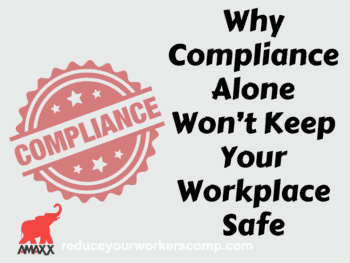According to a recent poll from the National Sleep Foundation, the workers that transport you on planes and trains may be more than just a tad sleepy.
The NSF’s 2012 Sleep in America poll, the first poll to ask transportation professionals, including pilots, train operators, truck, bus, taxi and limo drivers about sleep habits and work performance, indicates that approximately one-fourth of train operators (26%) and pilots (23%) admit that sleepiness has affected their job performance at least once a week, compared to about one in six non-transportation workers (17%).[WCx]
Perhaps more disturbingly, a significant number say that sleepiness has caused safety problems on the job. One in five pilots (20%) admit to making a serious error and one in six train operators (18%) and truck drivers (14%) report a “near miss” due to sleepiness.
Sleepiness has also played a role in car accidents commuting to and from work. Pilots and train operators are significantly more likely than non-transportation workers (6% each, compared to 1%) to say that they have been involved in a car accident due to sleepiness while commuting.
According to Dr. Sanjay Patel, a sleep researcher at Brigham and Women’s Hospital and Harvard Medical School, “Driving home from work after a long shift is associated with crashes due to sleepiness. We should all be concerned that pilots and train operators report car crashes due to sleepiness at a rate that is six times greater than that of other workers.”
Among all workers surveyed, train operators and pilots report the most workday sleep dissatisfaction. Almost two-thirds of train operators (57%) and one-half of pilots (50%) say they rarely or never get a good night’s sleep on work nights, compared to 44% of truck drivers and 42% of non-transportation workers. Bus, taxi, and limo drivers report the best workday sleep satisfaction, with about one-third (29%) reporting rarely or never getting a good night’s sleep on work nights.
Roughly one in 10 Americans reports being likely to fall asleep at an inappropriate time and place, such as during a meeting or while driving. The poll included a validated assessment tool used by doctors to determine whether a person is “sleepy.” Anyone who suffers from excessive sleepiness should seek professional help to identify underlying conditions. This study finds that 11% of pilots, train operators, bus, taxi, and limo drivers and 8% of truck drivers as well as 7% of non-transportation workers are “sleepy.”
“We found that although pilots are especially focused on obtaining adequate sleep, one in ten can still be classified as ‘sleepy.’ This is not acceptable. Who among us wants to take a one in ten chance of flying on a plane with a sleepy pilot?” added CPT Edward Edens, PhD of the Walter Reed Army Institute of Research.
A sleepy transportation worker is far more prone to mistakes: sleepy transportation workers report job performance problems about three times more often and report averaging about 45 minutes less sleep per night than their non-sleepy peers.
Many transportation workers cite the schedule as a major contributor to sleep problems. Almost one-half of train operators (44%) and more than one-third of pilots (37%) report that their current work schedule does not allow adequate time for sleep, compared to about one-fourth of non-transportation workers and truck drivers (27% each) and one-fifth of bus, taxi and limo drivers (20%).
In general, transportation professionals work more varied shifts than other workers, which may play a role in the sleep problems. Only 6% of pilots and 47% of train operators report working the same work schedule each day, compared to 76% of non-transportation workers.
Time off between shifts may also play a role in transportation workers sleepiness. Non-transportation workers report having an average of 14.2 hours off between shifts, compared to 12.9 hours for pilots; 12.5 for train operators; 12.1 for truck drivers; and 11.2 hours for bus, taxi, and limo drivers. If given one more hour off between work shifts, over one-half of pilots (56%) and train operators (54%) report that they would use that hour for sleep.
Long commutes cut into transportation workers already shortened time between shifts. Pilots report the longest commutes with 37% saying it takes more than an hour to get to work from home. Pilots and train operators have the highest average commute time of 45.5 minutes and 31 minutes, respectively, compared to a 23.8 minute average for non-transportation workers. Other research has consistently found that longer commute times have been associated with shorter individual sleep times.
The poll shows that transportation professionals are taking more naps than other workers.
More than one-half of pilots (58%) and train operators (56%) take at least one nap on work days, compared to about one-fourth of non-transportation workers (27%). About one in five pilots (20%), bus, taxi and limo drivers (20%), truck drivers (16%) and train operators (16%) report taking 3-5 naps during the work week. [WCx]
Finally, among those who report napping on work days, one-half of pilots (50%), almost one-half of truck drivers (42%), one-third of train operators (33%) and nearly one-fourth of bus, taxi and limo drivers (24%) report napping during work hours in the past two weeks, compared to about one in five non-transportation workers (19%).
Author Michael B. Stack, CPA, Director of Operations, Amaxx Risk Solutions, Inc. is an expert in employer communication systems and part of the Amaxx team helping companies reduce their workers compensation costs by 20% to 50%. He is a writer, speaker, and website publisher. www.reduceyourworkerscomp.com. Contact: mstack@reduceyourworkerscomp.com.
WORKERS COMP MANAGEMENT MANUAL: www.WCManual.com
Do not use this information without independent verification. All state laws vary. You should consult with your insurance broker or agent about workers comp issues.
©2012 Amaxx Risk Solutions, Inc. All rights reserved under International Copyright Law. If you would like permission to reprint this material, contact us at: Info@ReduceYourWorkersComp.com.


























